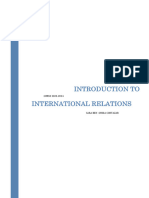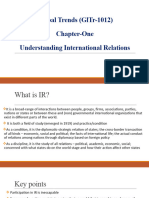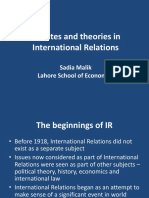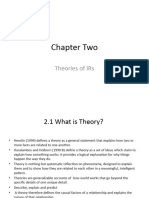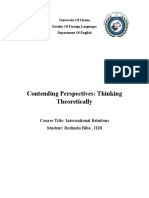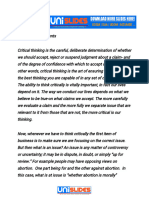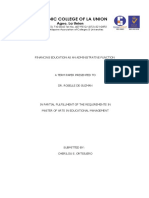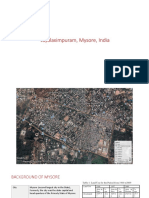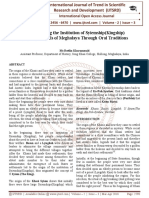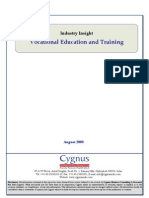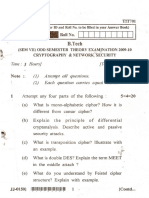0% found this document useful (0 votes)
49 views19 pagesPS 222 In-Class Summarized Notes
The document outlines the course PS 222: Introduction to International Relations I at the University of Dar es Salaam, focusing on the historical development of the global order, key concepts, and various theories in international relations. It emphasizes participatory learning through lectures and seminars, aiming to enhance students' analytical and communication skills. The course covers major debates in international relations, including realism vs. idealism and neo-realism vs. neo-liberalism, while also detailing the principles of realism and liberalism.
Uploaded by
shikimyjaphet4Copyright
© © All Rights Reserved
We take content rights seriously. If you suspect this is your content, claim it here.
Available Formats
Download as PDF, TXT or read online on Scribd
0% found this document useful (0 votes)
49 views19 pagesPS 222 In-Class Summarized Notes
The document outlines the course PS 222: Introduction to International Relations I at the University of Dar es Salaam, focusing on the historical development of the global order, key concepts, and various theories in international relations. It emphasizes participatory learning through lectures and seminars, aiming to enhance students' analytical and communication skills. The course covers major debates in international relations, including realism vs. idealism and neo-realism vs. neo-liberalism, while also detailing the principles of realism and liberalism.
Uploaded by
shikimyjaphet4Copyright
© © All Rights Reserved
We take content rights seriously. If you suspect this is your content, claim it here.
Available Formats
Download as PDF, TXT or read online on Scribd
/ 19






